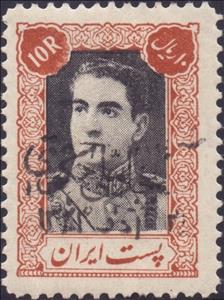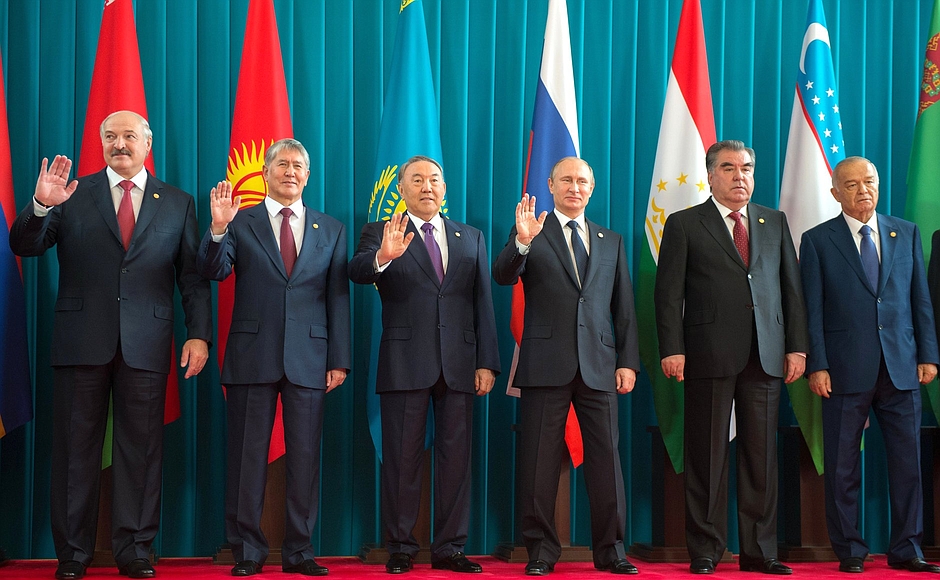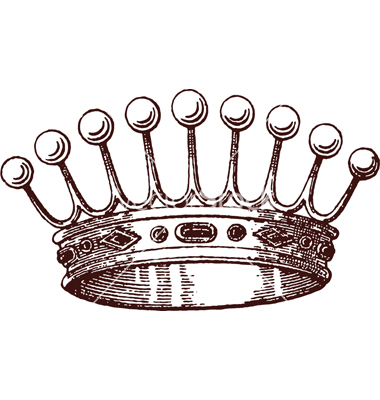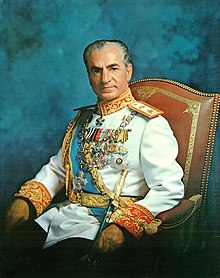Stamp: Mohammad Rezā Shāh Pahlavī (1919-1980) (Iran 1945)
Mohammad Rezā Shāh Pahlavī (1919-1980) (Iran 1945)
12 December (Iran ) within release Azerbaijan National Government (1945-1946) goes into circulation Stamp Mohammad Rezā Shāh Pahlavī (1919-1980) face value 10 Iranian rial
| Stamp Mohammad Rezā Shāh Pahlavī (1919-1980) in catalogues | |
|---|---|
| Stanley Gibbons: | Sg: IR 898 |
Stamp is square format.
When Soviet Army left the Azerbaijan Province, a rebel group seized the stamp stocks in different Azerbaijian Post Offices and overprinted them with the words "Azerbaijian National Government / December 1945". These were postally used."Also in the issue Azerbaijan National Government (1945-1946):
- Stamp - Archaeological museum, Tehran face value 35;
- Stamp - Archaeological museum, Tehran face value 75;
- Stamp - Bridge over the Kārun face value 5;
- Stamp - Ministry of Justice, Tehran face value 50;
- Stamp - Mohammad Rezā Shāh Pahlavī (1919-1980) face value 1;
- Stamp - Mohammad Rezā Shāh Pahlavī (1919-1980) face value 1;
- Stamp - Mohammad Rezā Shāh Pahlavī (1919-1980) face value 1.50;
- Stamp - Mohammad Rezā Shāh Pahlavī (1919-1980) face value 2;
- Stamp - Mohammad Rezā Shāh Pahlavī (1919-1980) face value 2.50;
- Stamp - Mohammad Rezā Shāh Pahlavī (1919-1980) face value 3;
- Stamp - Mohammad Rezā Shāh Pahlavī (1919-1980) face value 3;
- Stamp - Mohammad Rezā Shāh Pahlavī (1919-1980) face value 5;
- Stamp - Mohammad Rezā Shāh Pahlavī (1919-1980) face value 10;
- Stamp - Officer school, Tehran face value 70;
- Stamp - Railway bridge face value 25;
- Stamp - Veresk bridge face value 10;
Stamp Mohammad Rezā Shāh Pahlavī (1919-1980) it reflects the thematic directions:
Famous People refers to the fame and public attention accorded by the mass media to individuals or groups or, occasionally, animals, but is usually applied to the persons or groups of people (celebrity couples, families, etc.) themselves who receive such a status of fame and attention. Celebrity status is often associated with wealth (commonly referred to as fame and fortune), while fame often provides opportunities to make money.
A head of state (or chief of state) is the public persona that officially represents the national unity and legitimacy of a sovereign state. In some countries, the head of state is a ceremonial figurehead with limited or no executive power, while in others, the head of state is also the head of government. In countries with parliamentary governments, the head of state is typically a ceremonial figurehead that does not actually guide day-to-day government activities and may not be empowered to exercise any kind of secular political authority (e.g., Queen Elizabeth II as Head of the Commonwealth). In countries where the head of state is also the head of government, the president serves as both a public figurehead and the actual highest ranking political leader who oversees the executive branch (e.g., the President of the United States).
A man is an adult male human. Prior to adulthood, a male human is referred to as a boy (a male child or adolescent).
A Royalty is the immediate family of a king or queen regnant, and sometimes his or her extended family. The term imperial family appropriately describes the family of an emperor or empress, and the term papal family describes the family of a pope, while the terms baronial family, comital family, ducal family, grand ducal family, or princely family are more appropriate to describe the relatives of a reigning baron, count, duke, grand duke, or prince. However, in common parlance members of any family which reigns by hereditary right are often referred to as royalty or "royals." It is also customary in some circles to refer to the extended relations of a deposed monarch and his or her descendants as a royal family. A dynasty is sometimes referred to as "the House of ...". As of July 2013, there are 26 active sovereign monarchies in the world who rule or reign over 43 countries in all
Shah is a royal title that was historically used by the leading figures of Iranian monarchies. It was also used by a variety of Persianate societies, such as the Ottoman Empire, the Kazakh Khanate, the Khanate of Bukhara, the Emirate of Bukhara, the Mughal Empire, the Bengal Sultanate, historical Afghan dynasties, and among Gurkhas. Rather than regarding himself as simply a king of the concurrent dynasty , each Iranian ruler regarded himself as the Shahanshah or Padishah in the sense of a continuation of the original Persian Empire.





